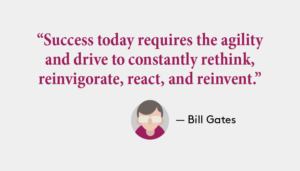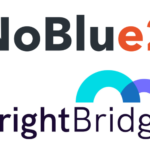For many businesses in today’s environment, it won’t be possible to expand their operations or improve their bottom line without access to good IT solutions. But with so many options competing for your attention, how do you know which ones are the right choices for your organisation?
One key consideration that enterprises should be thinking about in the current landscape is how their systems work together. Typically, many firms will have built up their IT solutions over a number of years, adding capabilities as and when they need them. But that may not necessarily be the best answer in the new, digital-focused era.
Companies are now dealing with more data than ever before, while growing businesses may find their operations expanding faster than they can cope. If they are still relying on a collection of disparate, unintegrated systems to manage their IT, this may mean it can be difficult to move crucial information around the business and access it exactly where and when it is needed.
Finding the information you need
With a set of disparate systems, tracking down the right information can be a time-consuming process. In many cases, the answers you seek might be buried in a complex spreadsheet or database that isn’t easily searchable. You know the details are there, but getting to them takes time out of your day, and it can be an immensely frustrating process.
But by making the transition to an integrated solution, you can be sure that all the details you need are available at your fingertips. This could mean no more hunting around for spreadsheets in order to find the right financial or pricing details for your products, and cuts the risk of error if you’re manually transferring details between solutions.
This allows businesses to greatly boost their efficiency when compared with using disparate systems, as they can focus more of their time on improving their service and growing their business, rather than housekeeping and data retrieval.
Carrying out your everyday business processes
With a set of separate systems, you might spend a large part of your day jumping between applications to perform certain tasks. It may frequently be the case that with a range of point solutions, all designed to do one particular task, everyday operations require a business to pass details between multiple systems, increasing the time taken and the risk of error.
For instance, confirming a sale might involve one person drawing up an order using one application, before the details are manually sent to the finance department, which uses another piece of software to conduct the necessary accounting activities. There is then a third application involved for managing the information of the new customer and providing ongoing support.
But these processes can be greatly streamlined with the help of a tightly integrated IT system. For example, by integrating your enterprise resource planning (ERP) and customer relationship management (CRM) operations, your sales team can easily convert quotes into approved sales orders, which automatically then flow to the finance team for invoicing and revenue recognition all in the one solution.
And by integrating a cloud file storage solution, you could link record-specific folders to client data in your CRM system. Employees can access relevant files from one IT solution whilst working within another one – saving time and effort that would otherwise have been spent juggling multiple systems.
What can it do for you?
What this can often mean is that a great deal of the costs and manual labour that are normally associated with a set of separate systems can be eliminated, allowing your staff to focus more closely on their core tasks.
An integrated IT system can benefit businesses of all sizes and in any sector, but it may be particularly useful to small and medium-sized enterprises, where any gains in productivity can have a big impact on the firm’s overall performance. Firms looking to expand to new locations or move to international operations can also greatly benefit from this.
With disparate systems, there may be a great deal of uncertainty that employees across the enterprise are able to access the most up-to-date information.
But integrated solutions that enable easier sharing and communication ensure they can always keep in touch with other parts of the business and be confident that everyone is working off the same data.
If you would like to know more about how you can improve your productivity through the use of integrated IT systems, please don’t hesitate to get in touch with our team of experts.
Please leave your comments below and share with your colleagues.










